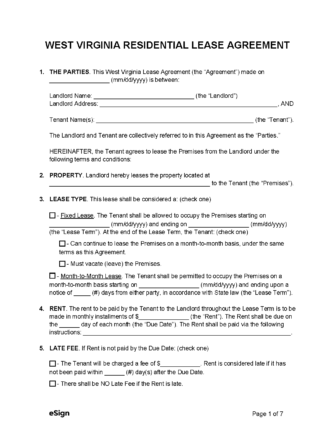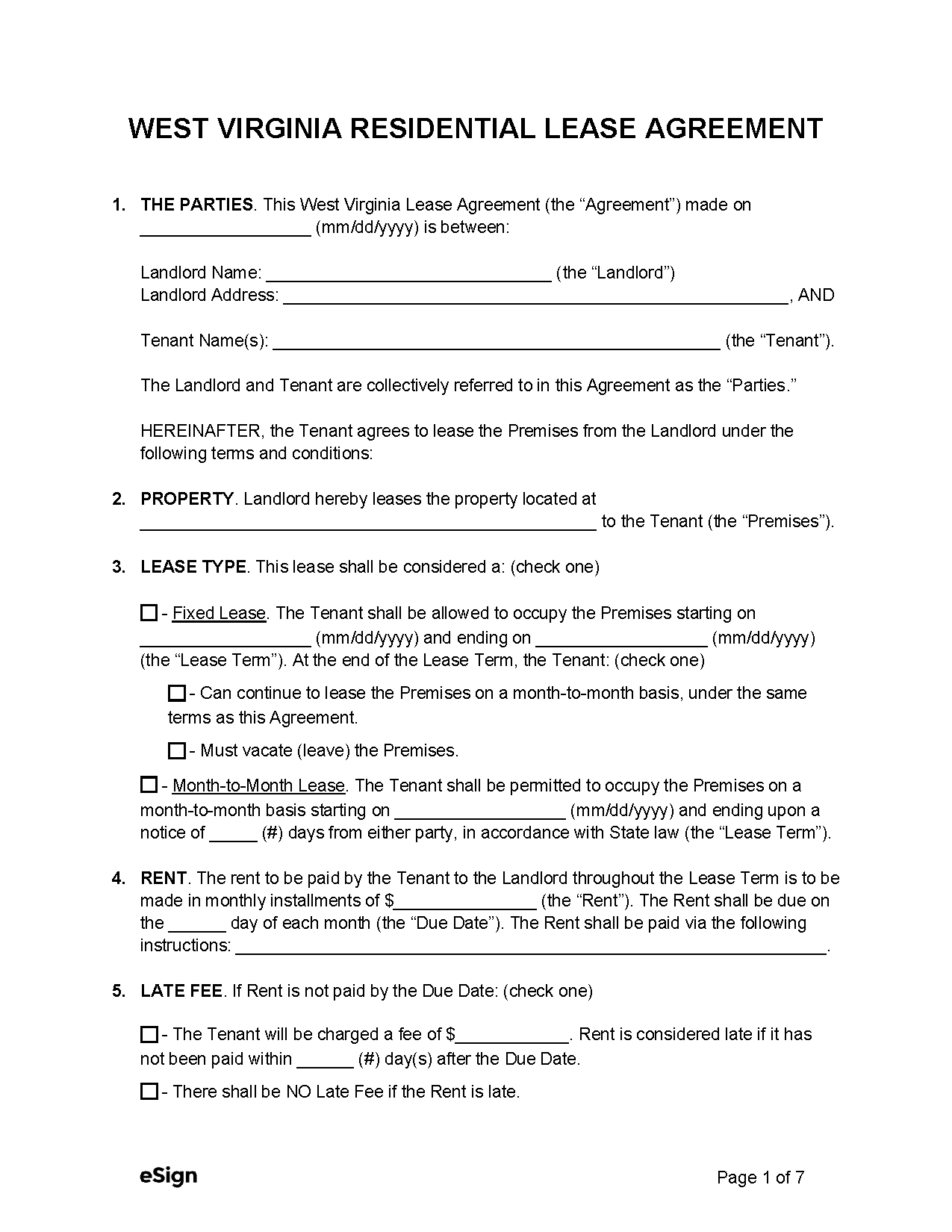
A West Virginia lease agreement allows landlords to rent out residential or commercial property to tenants in exchange for rent payments. The rights and responsibilities of the parties are outlined in the contract as well as all other provisions that create a legal rental arrangement. The written lease remains in effect until the end of the term or if both parties agree to terminate.
A West Virginia lease agreement allows landlords to rent out residential or commercial property to tenants in exchange for rent payments. The rights and responsibilities of the parties are outlined in the contract as well as all other provisions that create a legal rental arrangement. The written lease remains in effect until the end of the term or if both parties agree to terminate.
PDF Download
A West Virginia lease agreement allows landlords to rent out residential or commercial property to tenants in exchange for rent payments. The rights and responsibilities of the parties are outlined in the contract as well as all other provisions that create a legal rental arrangement. The written lease remains in effect until the end of the term or if both parties agree to terminate.
4.7 | 18 Ratings Downloads: 1,853
Rental Application – Used by landlords to collect information on lease applicants and request authorization for background checks.
Maximum Amount ($) – There is no maximum security deposit limit established by state law.
Collecting Interest – State statutes do not describe whether security deposit interest must be collected or distributed.
Returning to Tenant – Security deposits must be returned within 60 days of the expiration of the tenancy or within 45 days of the start of the following tenancy, whichever is shorter. [3]
Itemized List Required? – Yes, if the landlord makes deductions to the security deposit for damages, a written statement must be provided to the tenant with the balance of the deposit. [4]
Separate Bank Account? – No, there are no laws obligating the landlord to keep security deposits in a separate bank account.
General Access – No notice period for landlord entry is mentioned in state law.
Immediate Access – It is generally accepted that landlords can access the property without consent in the case of an emergency.
Grace Period – There is no grace period for paying rent in West Virginia.
Maximum Late Fee ($) – The maximum fee amount that landlords can charge for late rent is not covered in state statutes.
Bad Check (NSF) Fee – Landlords may charge a $25 fee for rent checks that bounce due to insufficient funds. [5]
Withholding Rent – Withholding rent is not within a tenant’s right; if a tenant is behind on rent, the landlord is not obligated to make repairs and may even file for eviction. [6]
Non-Payment of Rent – Serving a notice to quit for non-payment of rent is optional; landlords are within their rights to evict anytime past the rent due date. [7]
Non-Compliance – If a tenant does not comply with the lease, the landlord can start an unlawful detainer suit immediately; a notice to quit for non-compliance is optional.
Lockouts – It is illegal for landlords to prevent tenants from accessing their rental unit. [8]
Leaving Before the End Date – If a tenant fails to pay rent and has abandoned the property, the landlord may take back possession of the premises after 30 days by posting a notice on the premises. [8]
Month-to-Month – Monthly lease agreements can be ended be either party using a 1-month notice to quit. [11]
Unclaimed Property – If personal property is left on the premises, the landlord must notify the tenant that they have 30 days to collect it or it becomes property of the landlord. [12]